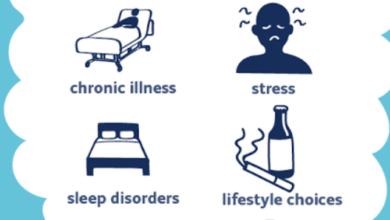Understanding the Benefits of Psychotherapy: A Comprehensive Guide

In the bustling pace of modern life, mental health has taken center stage, making the understanding of therapeutic methods increasingly vital. Psychotherapy, a practice rooted in communication and self-exploration, is valuable in managing psychological challenges. Enter the therapeutic space with a trusted therapist and embark on a transformative journey toward emotional well-being.
Psychotherapy extends beyond the objective treatment of symptoms to delve into the subjective human experience. Its focus is to untangle the complex web of emotions, thoughts, and behaviors that contribute to mental distress.
Introduction to Psychotherapy
As a specialized therapeutic intervention, psychotherapy champions the importance of mental well-being. Trained professionals in this field, such as trusted therapist in Ottawa, psychologists, and counselors, guide individuals through a page to a confidante who provides tools and insights to navigate the complexities of the psyche.
The role of a psychotherapist is underpinned by empathy, scientific knowledge, and specialized training. Their objective is not to offer quick fixes but to empower clients to find sustainable solutions to their problems. Unlike traditional medical interventions, which often focus narrowly on symptom relief, psychotherapy seeks to understand underlying issues and foster growth in all aspects of life.
Types of Psychotherapy and Their Uses
Diverse in its approaches, psychotherapy caters to individual needs. Cognitive-behavioral therapy (CBT) stands out with its structured approach to reprogramming detrimental thoughts and behaviors. It equips individuals with pragmatic skills to address the challenges of conditions like anxiety and depression and cultivate a more adaptive mindset.
On the other end of the spectrum, psychodynamic therapy plunges into the depths of the subconscious. Examining past experiences and their impact on present behavior unravels the inner script that drives one’s life narrative. Holistic or integrative therapies cast a wider net, combining methodologies to treat the person as a whole — mind, body, and spirit.
The Science Behind Psychotherapy
Predicted upon the marvels of the human brain, the effectiveness of psychotherapy resides in its ability to instigate change at a neurological level. Neuroplasticity—the brain’s capacity to form new connections—is a cornerstone of psychotherapeutic theory. Therapy can trigger lasting brain adaptations through guided techniques and structured dialogue, altering behavior and emotional states.
Significant research supports psychotherapy as a mainstay in the management of mental health afflictions. For instance, comprehensive studies highlighted by the American Psychological Association underscore its efficiency across various contexts, from mitigating symptoms of depression to bolstering overall life satisfaction. These benefits often persist long after therapy concludes, illustrative of its transformative potential.
Psychotherapy for Different Age Groups and Demographics
Understanding individual life stages is crucial for effective psychotherapy. Younger clients, such as children and teenagers, necessitate a different approach characterized by creativity, play, and age-appropriate communication. While grappling with their unique stressors and life challenges, adults and seniors benefit from methods responsive to their experiences and responsibilities.
The inclusivity of psychotherapy also recognizes cultural diversities and social factors. Therapists who embrace cultural competence offer more personalized care, acknowledging and respecting the profound impact of one’s background on one’s psychological state. This sensitivity is not only ethical but enhances the therapeutic alliance and outcomes.
Coping with Life Transitions Through Psychotherapy
Whether chosen or involuntary, transitions disrupt the equilibrium of life, adapting a necessity. Psychotherapy provides a navigational tool for instances of grief, the end of relationships, or sudden life changes. It offers strategies to process emotions constructively and facilitates resilience.
Within familial structures, psychotherapy addresses communication breakdowns, aids in conflict resolution, and strengthens relational dynamics. In the professional realm, it assists with career-related stress, promoting personal development and fulfillment. By fostering emotional intelligence, therapy enables individuals to approach transitions with a sense of agency and composure.
Psychotherapy in the Treatment of Mental Illness
As a pivotal element in mental health treatment, psychotherapy addresses a spectrum of psychological conditions. For those contending with depression or anxiety disorders, it offers a reflective space to explore emotions and build solid coping strategies. The application is equally practical for more complex diagnoses such as PTSD or OCD, where tailored therapeutic techniques are employed to navigate symptomatology.
Serious behavioral concerns like addiction find reprieve in therapy’s ability to harness personal motivation and drive change. By focusing not only on immediate symptom relief but also equipping individuals with lifelong management strategies, psychotherapy contributes to thoughtful, comprehensive care.



